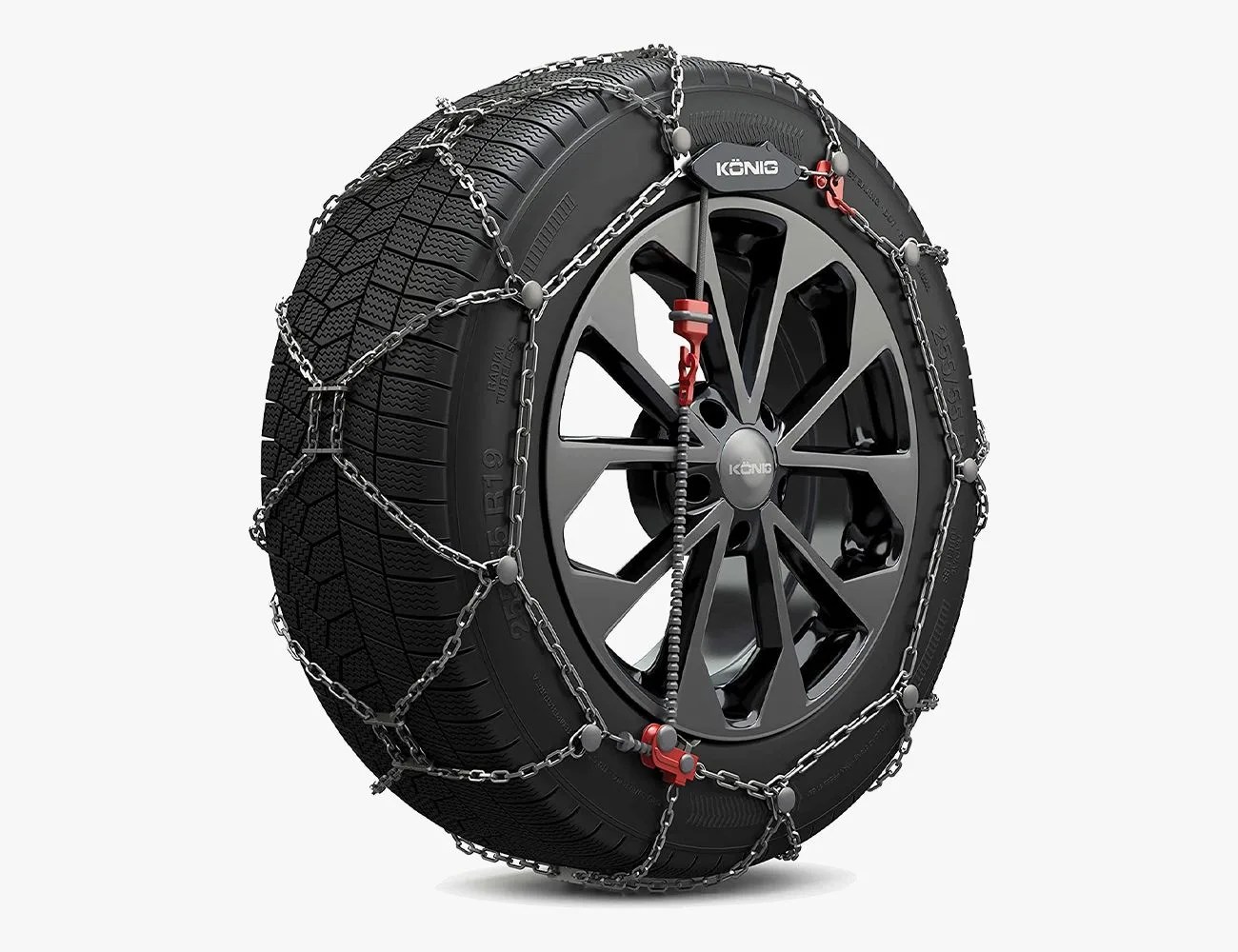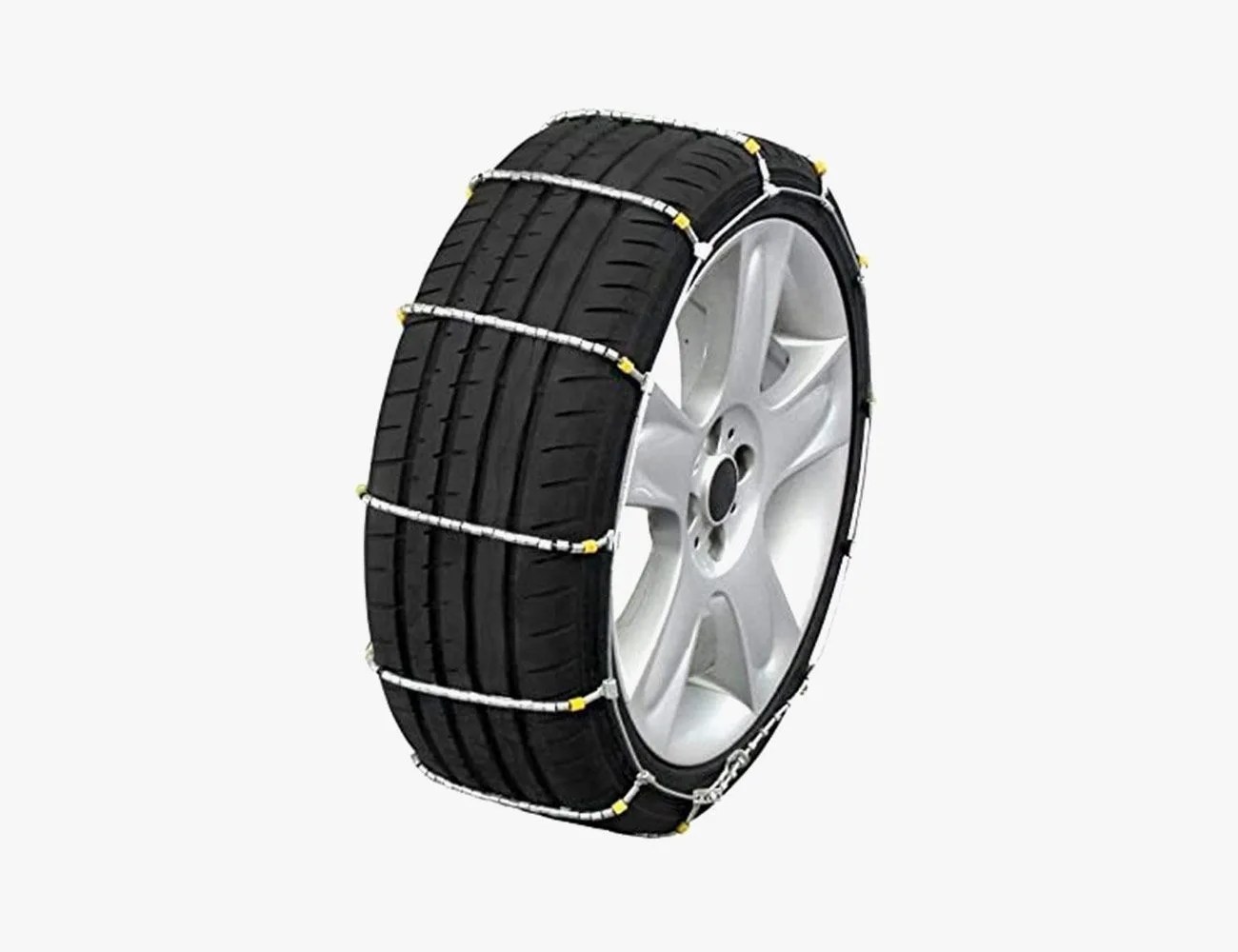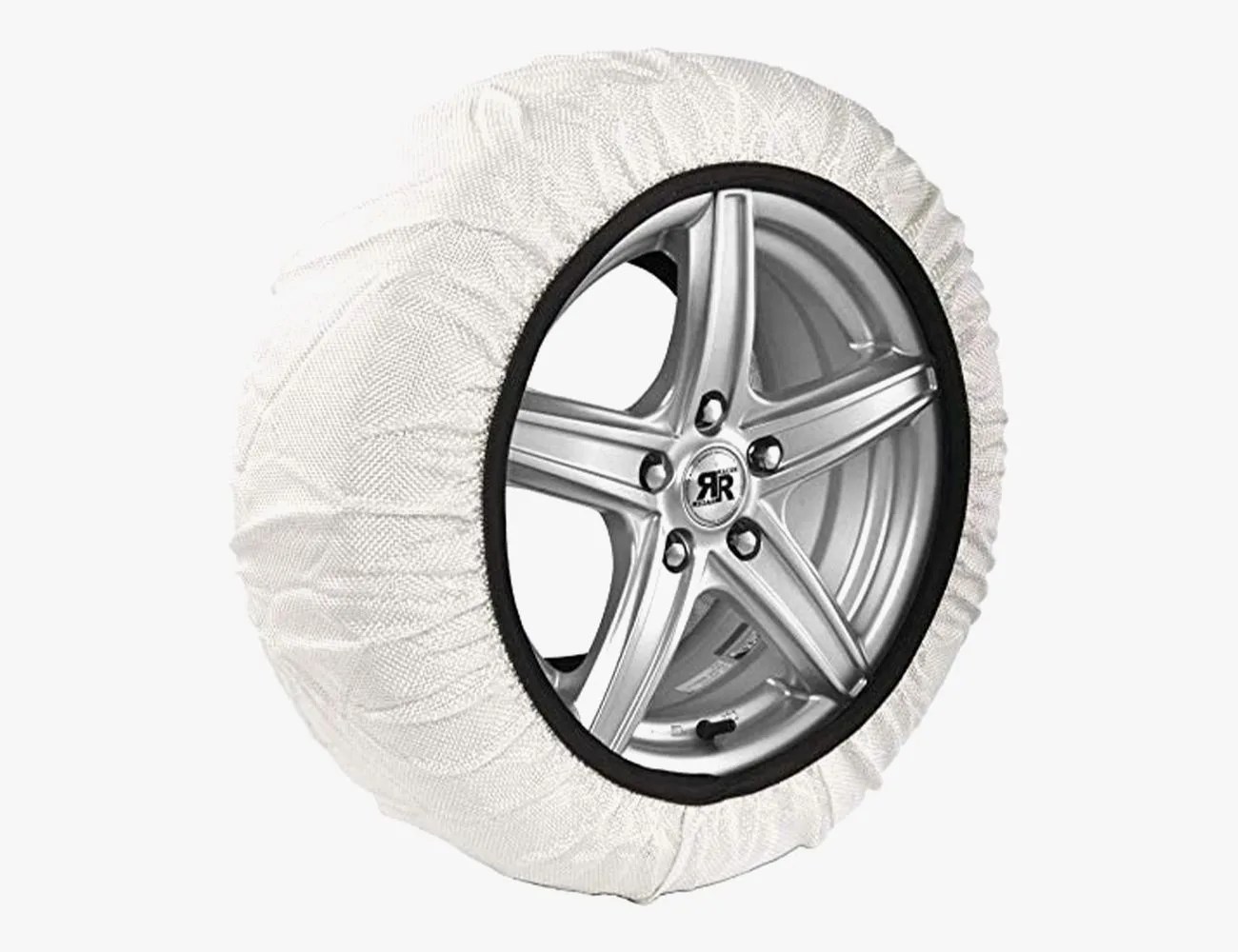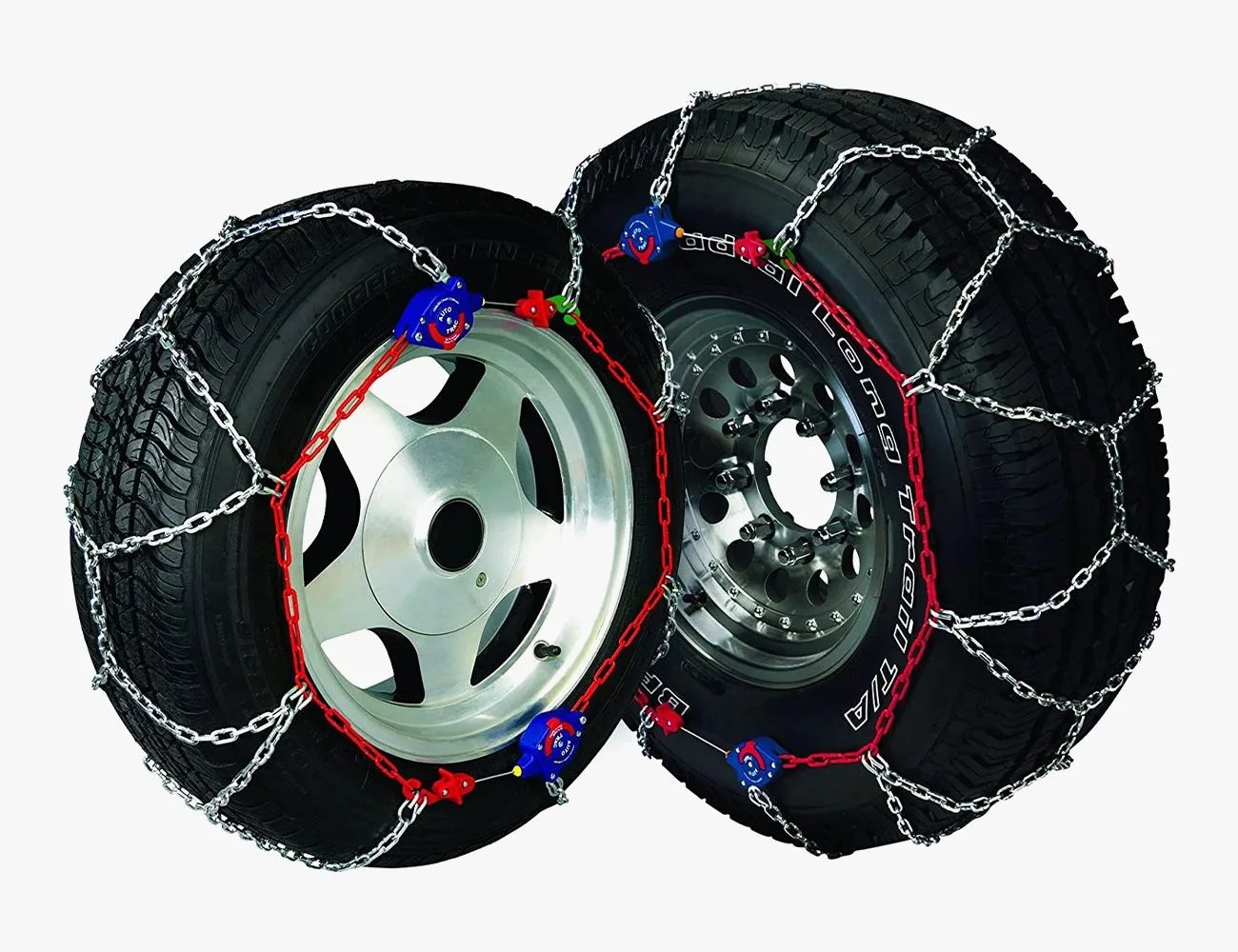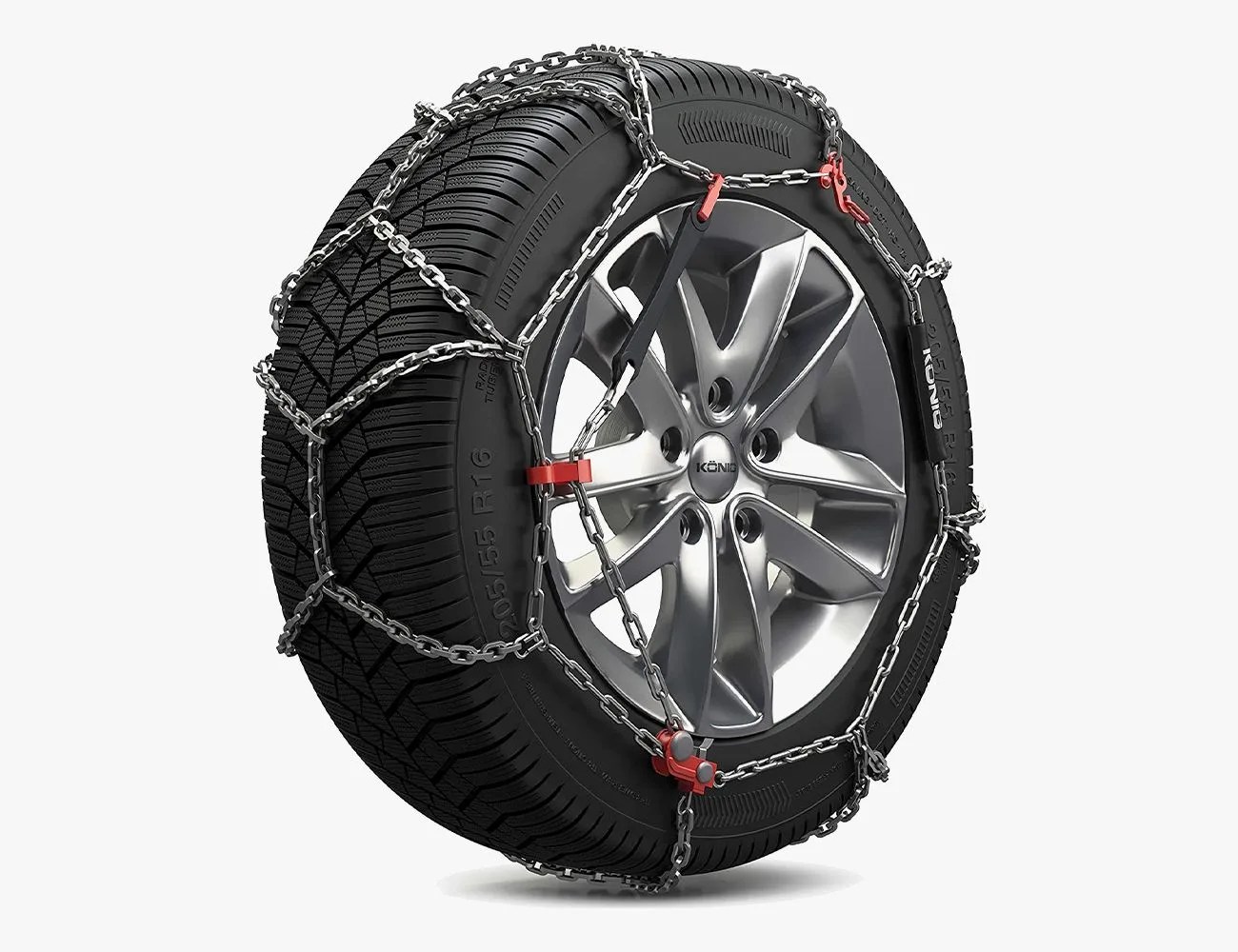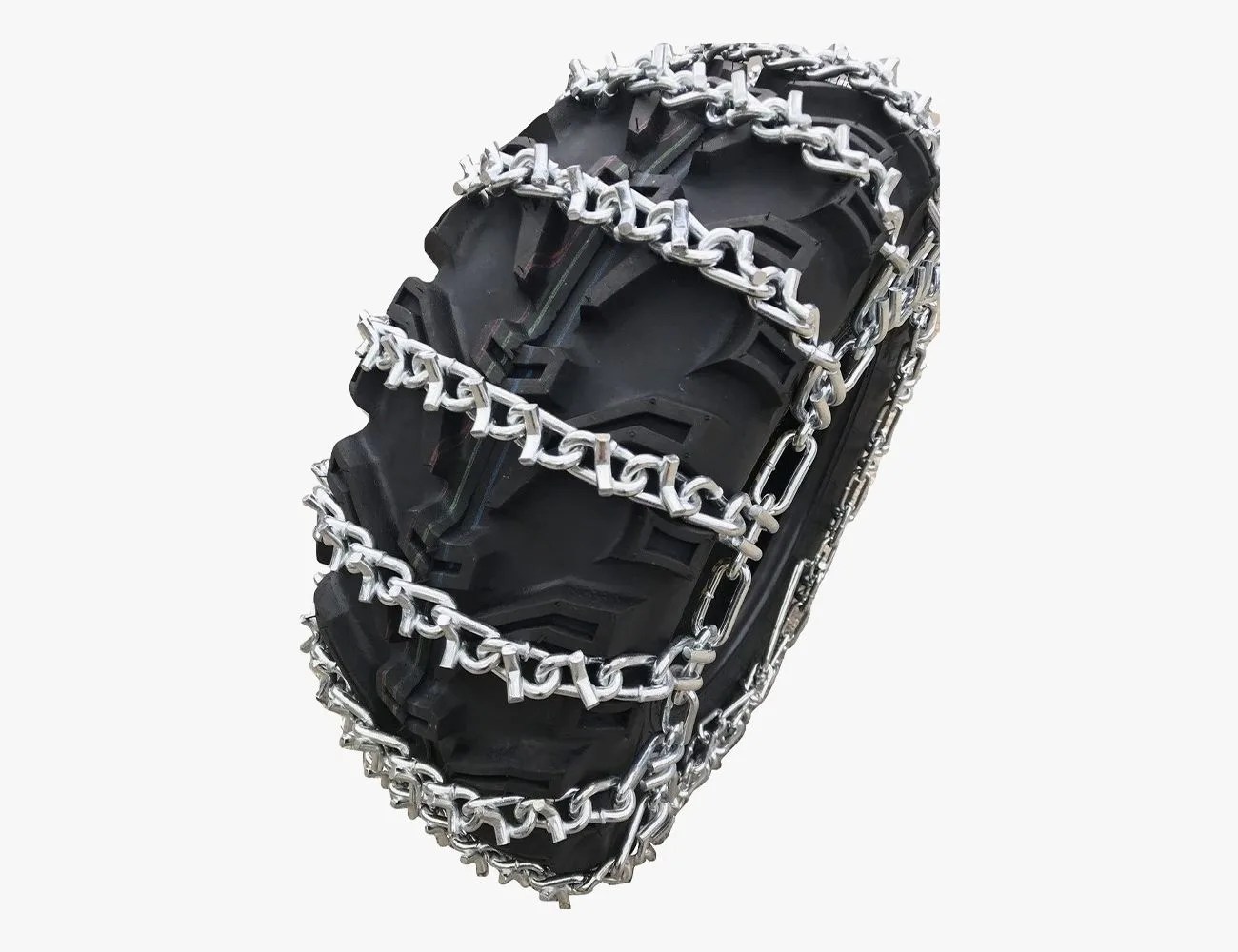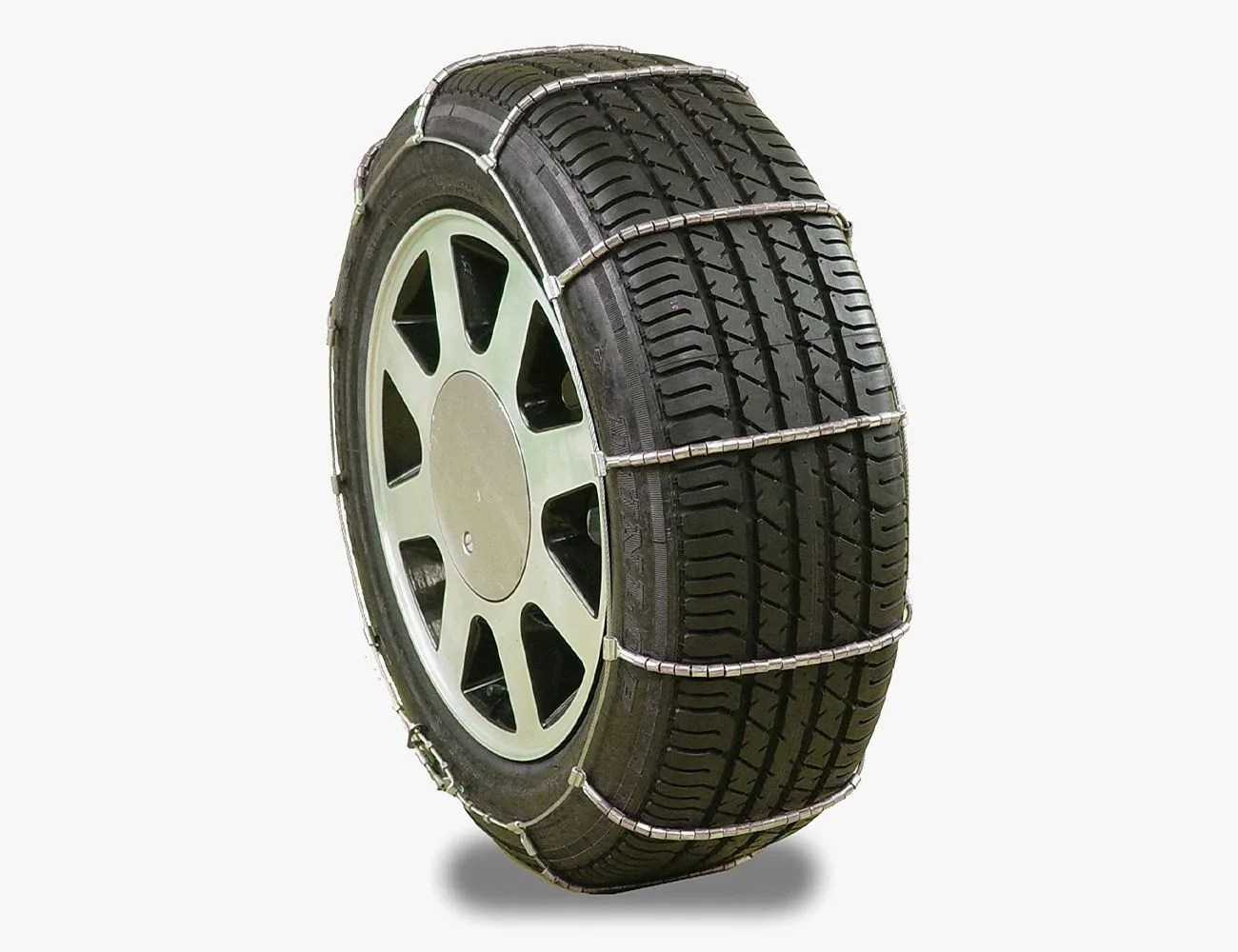Winter is nearly upon us. Temperatures are cold enough for water to crystallize into snow and ice, which can cause havoc with traction. If you live in an area that gets the odd dusting of snow every winter, a great set of snow tires will be sufficient. But if you live (or vacation) in a rural or mountainous region where snow can fall by the foot, tire chains or snow chains can be a great option for added traction.
Products in the Guide
-
Security Chain Company Super Z6
Best Tire Chains
Read more -
KÖNIG XG-12 PRO 255 Snow Chains, Set of 2
Best Upgrade Tire Chains
Read more -
Quality Chain Cobra
Best Tire Chains on a Budget
Read more -
ISSE Textile Snow Chains
Best Snow Sock
Read more -
Peerless Auto-Trac
Read more -
Konig CB-12
Read more -
TireChain.com ATV-UTV V-Bar Tire Chains
Read more -
Glacier Passenger Cable Tire Chains
Read more
Types of Tire Chains
Diamond
Diamond tire chains are more literal chains made from metal links. They offer the best traction. They are better for heavy snowfalls. They can even be studded for digging into ice. The drawback with diamond chains is they get pricey, can be overkill for the conditions you face and can damage the road when conditions are too light.
Cable
Cable tire chains, as the name suggests, consist of cables stretching across the tires. Cable tire chains are better for lighter applications and do not provide as much additional traction as diamond tire chains. But they are typically cheaper, have less of an impact on ride quality and are effective enough to use in a pinch during emergencies.
Snow socks
These are an alternative to tire chains. They are made from polyester fabric and fit over the tire like a sock. They are cheaper than tire chains, easier to get on and off and can be a great option for vehicles with less space between the tire and sidewalls. Because they are not tire chains and don’t damage the road, they aren’t subject to the same restrictions as tire chains.
What to Consider When Buying Tire Chains
Your vehicle requirements
Tire chains need to fit the tires you’re putting them on. They must also fit between the tires and the vehicle’s sidewalls and suspension components to avoid damaging them. Some vehicles may require a specific type of tire chain (often SAE Class S). Some vehicles may not allow tire chains to be used. That information will typically be available in your vehicle’s owner’s manual.
Local laws
State and local laws will vary on when and where tire chains are permitted. In certain areas, tire chains will be mandatory during snow emergencies or must be kept in the car during the winter.
Installation and removal ease
No one wants to spend a long period fussing out in the cold and snow with tire chains. Automatic or assisted tensioning chains and quick-release functions can make installment and removal much easier. But they can also jack up the price.
Anti-scratch protection
Cheaper tire chains may save you money in the short term. But that can be penny-wise, pound foolish if those chains scratch up your slick alloy wheels. More premium tire chains will have safeguards in place.
The Best Tire Chains You Can Buy
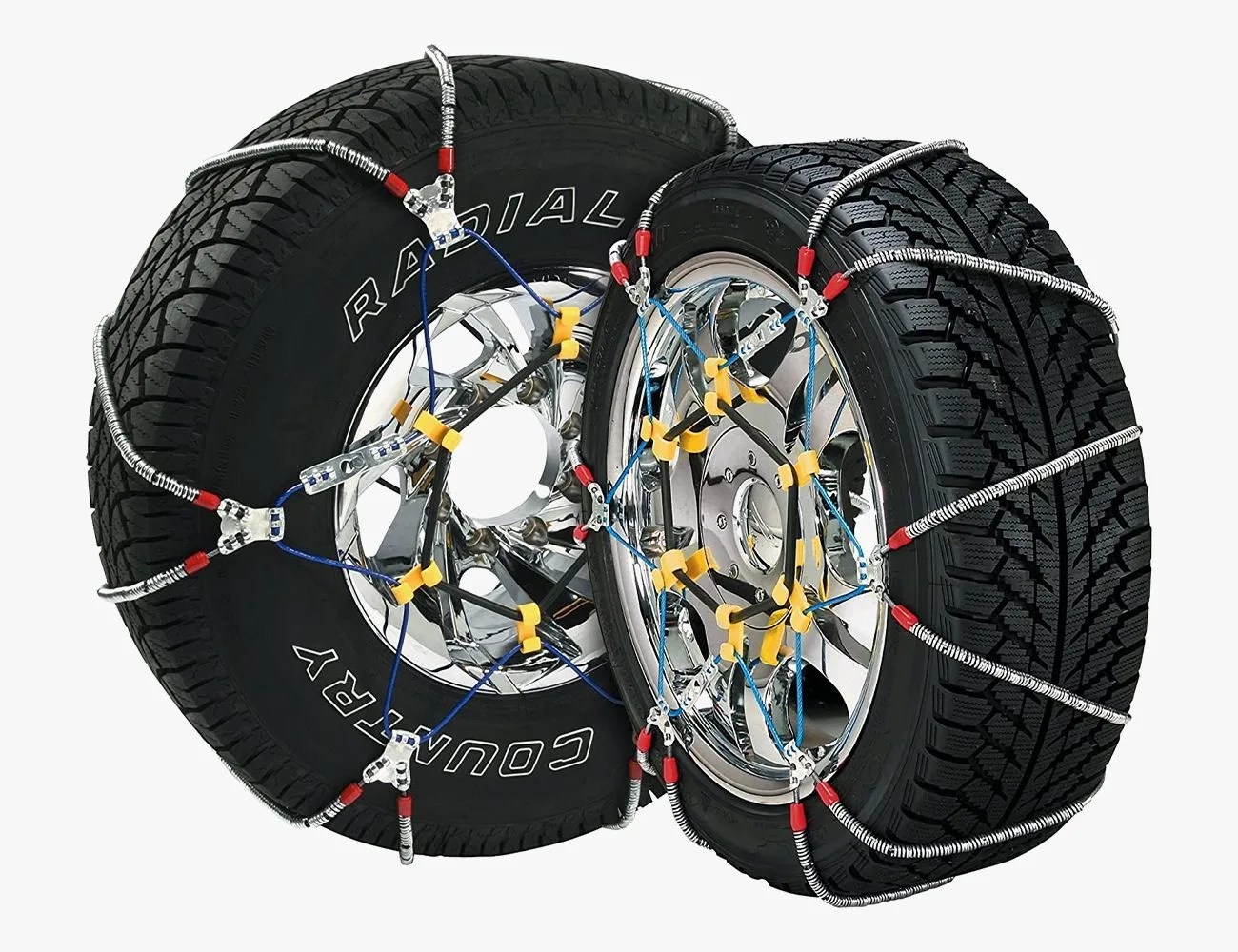 Amazon
AmazonBest Tire Chains
Security Chain Company Super Z6
Pros
- Low-profile, requiring only 1/4 inch of added ground clearance
- Fits passenger cars and trucks/SUVs
- Reasonable price point
Cons
- No self-tensioning system

